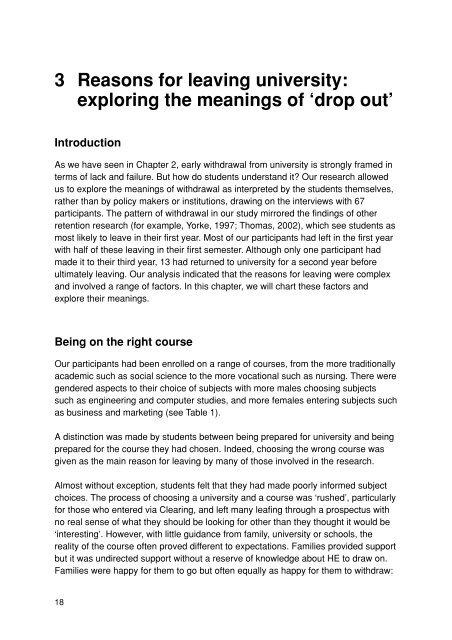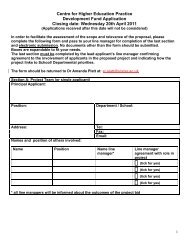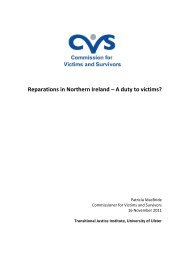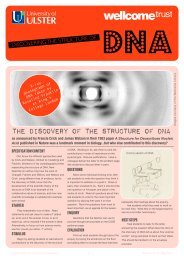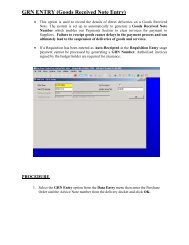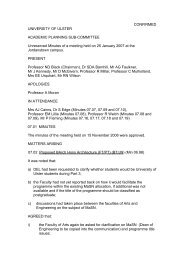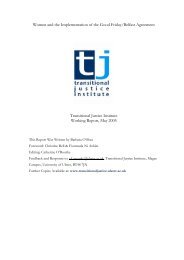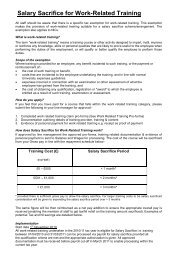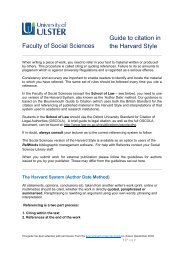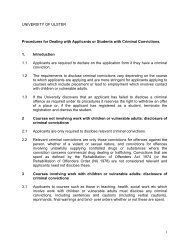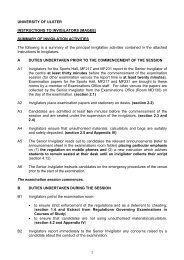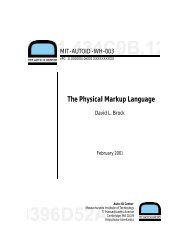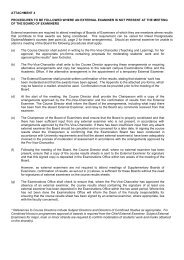From life crisis to lifelong learning: Rethinking working-class 'drop out'
From life crisis to lifelong learning: Rethinking working-class 'drop out'
From life crisis to lifelong learning: Rethinking working-class 'drop out'
You also want an ePaper? Increase the reach of your titles
YUMPU automatically turns print PDFs into web optimized ePapers that Google loves.
3 Reasons for leaving university:<br />
exploring the meanings of ‘drop out’<br />
Introduction<br />
As we have seen in Chapter 2, early withdrawal from university is strongly framed in<br />
terms of lack and failure. But how do students understand it? Our research allowed<br />
us <strong>to</strong> explore the meanings of withdrawal as interpreted by the students themselves,<br />
rather than by policy makers or institutions, drawing on the interviews with 67<br />
participants. The pattern of withdrawal in our study mirrored the findings of other<br />
retention research (for example, Yorke, 1997; Thomas, 2002), which see students as<br />
most likely <strong>to</strong> leave in their first year. Most of our participants had left in the first year<br />
with half of these leaving in their first semester. Although only one participant had<br />
made it <strong>to</strong> their third year, 13 had returned <strong>to</strong> university for a second year before<br />
ultimately leaving. Our analysis indicated that the reasons for leaving were complex<br />
and involved a range of fac<strong>to</strong>rs. In this chapter, we will chart these fac<strong>to</strong>rs and<br />
explore their meanings.<br />
Being on the right course<br />
Our participants had been enrolled on a range of courses, from the more traditionally<br />
academic such as social science <strong>to</strong> the more vocational such as nursing. There were<br />
gendered aspects <strong>to</strong> their choice of subjects with more males choosing subjects<br />
such as engineering and computer studies, and more females entering subjects such<br />
as business and marketing (see Table 1).<br />
A distinction was made by students between being prepared for university and being<br />
prepared for the course they had chosen. Indeed, choosing the wrong course was<br />
given as the main reason for leaving by many of those involved in the research.<br />
Almost without exception, students felt that they had made poorly informed subject<br />
choices. The process of choosing a university and a course was ‘rushed’, particularly<br />
for those who entered via Clearing, and left many leafing through a prospectus with<br />
no real sense of what they should be looking for other than they thought it would be<br />
‘interesting’. However, with little guidance from family, university or schools, the<br />
reality of the course often proved different <strong>to</strong> expectations. Families provided support<br />
but it was undirected support without a reserve of knowledge about HE <strong>to</strong> draw on.<br />
Families were happy for them <strong>to</strong> go but often equally as happy for them <strong>to</strong> withdraw:<br />
18


